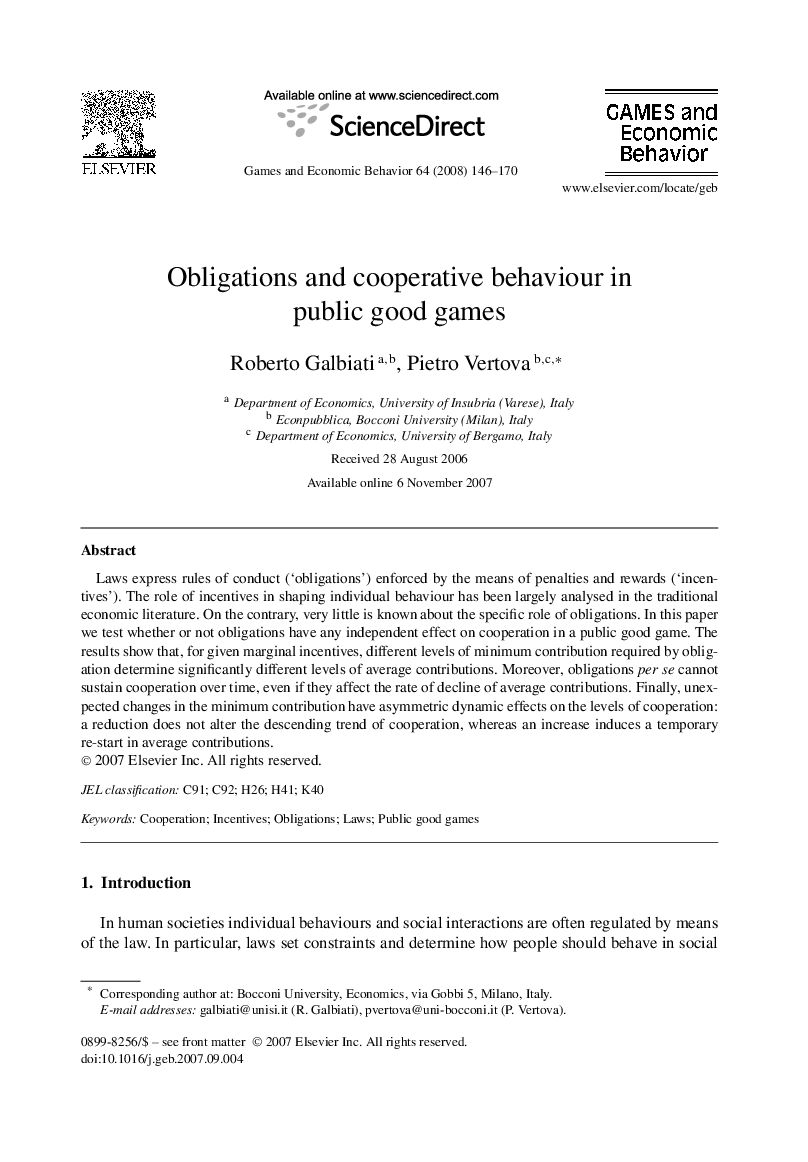| Article ID | Journal | Published Year | Pages | File Type |
|---|---|---|---|---|
| 5072886 | Games and Economic Behavior | 2008 | 25 Pages |
Laws express rules of conduct ('obligations') enforced by the means of penalties and rewards ('incentives'). The role of incentives in shaping individual behaviour has been largely analysed in the traditional economic literature. On the contrary, very little is known about the specific role of obligations. In this paper we test whether or not obligations have any independent effect on cooperation in a public good game. The results show that, for given marginal incentives, different levels of minimum contribution required by obligation determine significantly different levels of average contributions. Moreover, obligations per se cannot sustain cooperation over time, even if they affect the rate of decline of average contributions. Finally, unexpected changes in the minimum contribution have asymmetric dynamic effects on the levels of cooperation: a reduction does not alter the descending trend of cooperation, whereas an increase induces a temporary re-start in average contributions.
